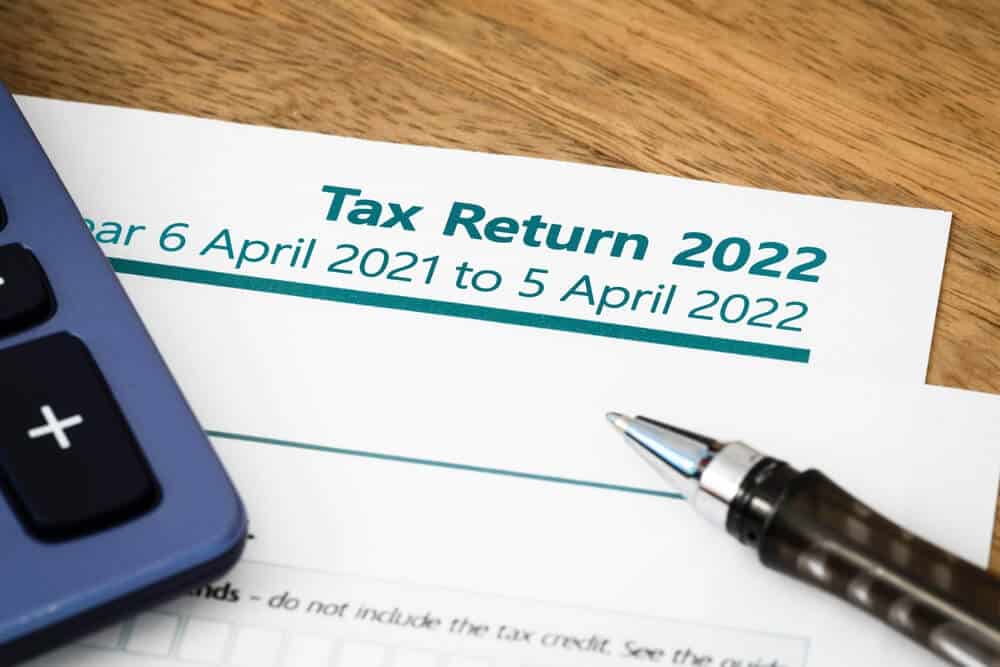Every year, hundreds of thousands of people receive tax credit overpayment – so if you’ve realised you’ve been overpaid, you’re not alone.
Whether you’ve done the maths yourself or received a letter from the Department for Work and Pensions (DWP) informing you, realising you might owe money to the government can feel worrying or frustrating.
In this guide, we’ll explain everything you need to know about a tax credit overpayment, including:
- What tax credits are
- How people end up with tax credit overpayments
- What to expect when you talk to someone about overpaid tax credits
- Whether or not tax credit overpayment debt can be written off
We’ll also walk you through some next steps you can take – so when you’ve finished reading, you’ll have a better idea of what comes next and what steps to take.
What are tax credits, and how do overpayments happen?
Tax credits are a kind of benefit that’s paid by the government to people who either:
- have children and/or
- earn under a certain amount
They’re known as either child tax credit or working tax credit.
These benefits are both ‘means tested’, which means the government considers your financial circumstances before deciding whether or not you’re entitled to the payment.
It’s because of this means testing that most overpayments occur. How much the government thinks you should pay is based on your financial circumstances in the last tax year.
His Majesty’s Revenue and Customs (HMRC) will look at your earnings in the last tax year (6 April to 5 April) and decide how much they predict you should be paid the following year.
If this estimate is too low, then you could end up being paid more than you’re entitled to.
Other reasons tax credit debt occurs
Although most tax credit overpayments occur because of incorrectly predicting your next year’s income, there are other reasons overpayments can occur.
Late reporting
HMRC relies on people telling them their entitlement will change. If you leave it too late to let them know, you could get an overpayment.
Common changes to your entitlement could be changes in working hours or children leaving full-time education.
HMRC delays
Sometimes, HMRC’s workload means that changes they’re informed of take longer than expected to be registered on their system.
This can mean your tax credit entitlement is miscalculated and future payments are too high.
Claimant errors
Mistakes made when people fill out their tax credit claim or renewal form are common and can lead to tax credit payments being too high.
HMRC errors
In some cases, human errors or system errors made by HMRC can lead to incorrect income figures or incorrect tax credit figures – resulting in overpayment.
HMRC investigations
Although rare, if HMRC suspects someone has purposefully tried to show incorrect earnings, they will work off old information until any investigation is complete.
How to check if you’ve actually been overpaid
Whether you think you’ve been overpaid or HMRC has contacted you to request repayment, the first thing to do is double checking the facts they’re working from.
Usually, miscalculations don’t require complicated maths, they’re often just calculated based on incorrect facts. For example, they may think:
- You earn more than you do
- You’re not self-employed when you are
- You live with a partner when you don’t
- A child has left full-time education when they haven’t
They will usually outline the reason for overpayment in any letter they send. If you feel they’ve got this wrong – or you can’t find any details about why they’ve come to their decision, you should call the tax credits helpline.
How to contact HMRC
Telephone: 0345 300 3900
From outside the UK: +44 2890 538 192
If you use the Relay UK service, you can type instead using: 18001 then 0345 300 3900
Lines are open Monday to Friday, 8am to 6pm
If you’d prefer to use the Welsh language service you should call: 0300 200 1900
The Welsh language service lines are open Monday to Friday, 8.30am to 5pm
When you call, make sure you note down the name of the person you speak to, any important information, and which HMRC office the person you’re talking to is based at.
These details are useful if you need to challenge the decision further down the line.
What to do if you think you’ve been paid correctly
If you think you’ve been paid correctly, you have to ask HMRC to look at the decision again. The name HMRC uses for this is a ‘mandatory reconsideration’.
You’ve got 30 days from the date of the letter to ask for a mandatory reconsideration. It’s important to ask for reconsideration within this time limit otherwise you will have to provide evidence that explains why you didn’t.
You can still request a mandatory reconsideration any time up to 13 months after the decision is made, but you’ll need to explain why you couldn’t ask in time, such as:
- You, a partner or a child being seriously ill
- Your partner or a child has died
- You were not in the UK at the time
- There were problems with the postal service
Again, you’ll need to start the mandatory reconsideration process by calling HM Revenue and Customs using the details above.
As long as they feel you have a valid reason, they will extend the deadline for the reconsideration.
When it comes to the actual reconsideration, the person you speak to will explain what evidence they need to see based on the error that you think has been made.
They’ll contact you if they need any additional information, and they’ll usually come to a decision within 14 working days.
Debt Calculator
What to do if you think you have been paid too much
You may look at your own figures or the letter you’ve been sent and realise that you have received a tax credits overpayment.
If this is the case, don’t worry – genuine mistakes happen all the time, and HMRC has a full team set up to help you deal with these kinds of problems.
The tax credit office will say that you have to pay back any debt within 30 days – but don’t worry, they’re almost always willing to discuss a repayment plan.
What happens if you have to repay a tax credits overpayment
You may decide that you want to pay HM Revenue and Customs within 30 days. If you do, call them, explain the circumstances and they’ll be able to take a payment over the telephone.
If you don’t think you’ll be able to make the full payment within 30 days – or doing so will leave you facing financial hardship, then you should give them a call and talk about repayment options.
What are your repayment options?
Depending on the amount you owe, HMRC or the DWP will offer a range of repayment options. They include:
Repayment over 12 months: The most common payment plan is one that covers 12 months.
If you choose this option, you generally won’t be asked for any additional info, and a Direct Debit will be set up to take the money from your bank account, or you can pay HMRC directly by card each month.
Repayment over 1-10 years: If repaying the full amount over 12 months or less isn’t manageable, you’ll often be given a chance to make repayments over a period of 1-10 years.
If you can make a repayment of £10, or enough to wipe out the tax credit overpayment debt in less than 3 years, you usually won’t be asked for any more information or evidence.
However, if you can’t afford at least £10 per month, you may be asked to provide a monthly budget so they can help you decide on the best repayment plan for you.
Repayment over 10+ years: If you cannot make a payment of £10 and the debt is very large, it might mean your repayment plan will stretch beyond 10 years.
If this is the case, they will usually ask you to put together a detailed monthly or weekly budget. Again, this will help them make sure you’re paying as much as possible while still having enough for essentials.
What happens with joint claim tax credit debts?
In some cases, a debt could have occurred as a result of a mistake or a miscalculation relating to a joint tax credits claim.
The law says that, even if the debt relates to a joint claim, HMRC can still recover the debt in full from just one of the people involved.
If there has been a divorce or separation, HMRC will do their best to track down each person involved and hold them responsible for 50% of the debt.
If you think the debt should be split differently to this, you should talk to HMRC or the other person involved and explain why this is the case.
Ultimately, HMRC will make the final decision on this.
What happens if you ignore tax credit debts?
If you’ve thought about ignoring overpayment letters and hoping the problem will work itself out, you’re not alone.
Unfortunately, like all debts, tax credit overpayments won’t go away and HMRC will start with ‘direct recovery’ options if they don’t hear from you.
Reminders and debt collection
To begin with, they will send reminder letters. These quickly turn into demands with threats of court action and referring your case to a debt collection agency.
If a debt collection agency gets involved, they will put more pressure on you – calling, emailing, texting, and writing more letters.
There will often be additional admin charges added at this stage, increasing the amount you owe.
Court action
If you ignore the tax credit overpayment debt for long enough, HMRC will begin court proceedings against you.
At this stage, you’ll still be able to contact the tax credits helpline and discuss payment plans – but if the case goes to court, your options will be reduced.
HMRC will apply for a County Court Judgment (CCJ) that forces you to repay the debt. If the CCJ is successful, the court will tell you to pay the debt back immediately – although they may let you come to a repayment plan. If things get to this stage, the amount you owe will have increased to include court costs and some admin charges.
Direct Earnings Attachment or Cross-Claim Recovery
If you still don’t make payment, HMRC can go back to the court and ask that a Direct Earnings Attachment or Cross-Claim Recovery is put in place.
This means the debt will be recovered without needing your consent – with money taken directly from your wages or Universal Credit Payments.
Alternatively, they may ask that Court Enforcement Officers visit you to repossess your things to sell to help recoup the debt.
Can tax credit overpayments be written off?
It’s very rare that tax credit overpayments are written off by HMRC – but it’s not impossible.
If you can prove that you cannot afford to pay more than £10 a month, and this means the debt will take longer than 3 years to clear, they may let you put the debt on hold for 12 months.
After this year has passed, they will take another look at your financial circumstances and see if you’re in a better position to pay.
If you still cannot afford to pay back the debt, then they may agree to write it off.

Why choose YourDebtExpert?
- Write off unsecured debts over £5,000
- Stop interest and charges soaring
- Reduced payments from £85 per month
Are there any other methods to deal with a tax credits overpayment?
If you’re struggling with debt and tax credit overpayments are adding to the pressure, you may decide to explore approved debt solutions.
Formal debt solutions – such as bankruptcy or an Individual Voluntary Arrangement (IVA) aren’t right for everyone, but if they would suit your circumstances, HMRC debt can be included.
When a debt solution comes to an end, all the creditors (companies you owe money to) agree that any remaining debt will be written off.
Therefore, if you have any debt remaining with HMRC, it will be legally written off at this stage.





